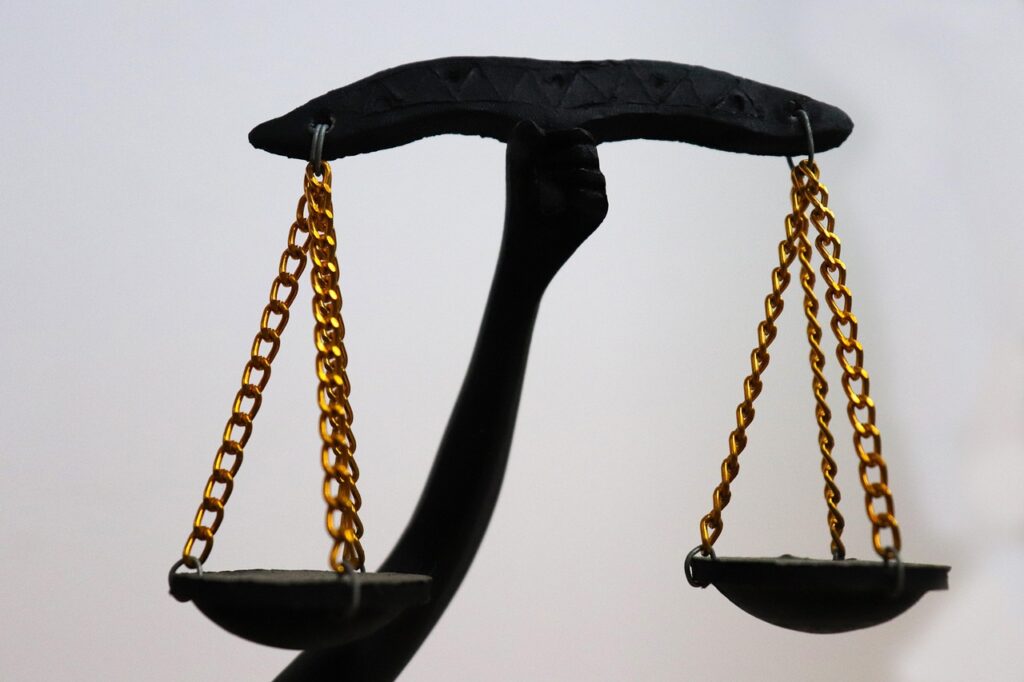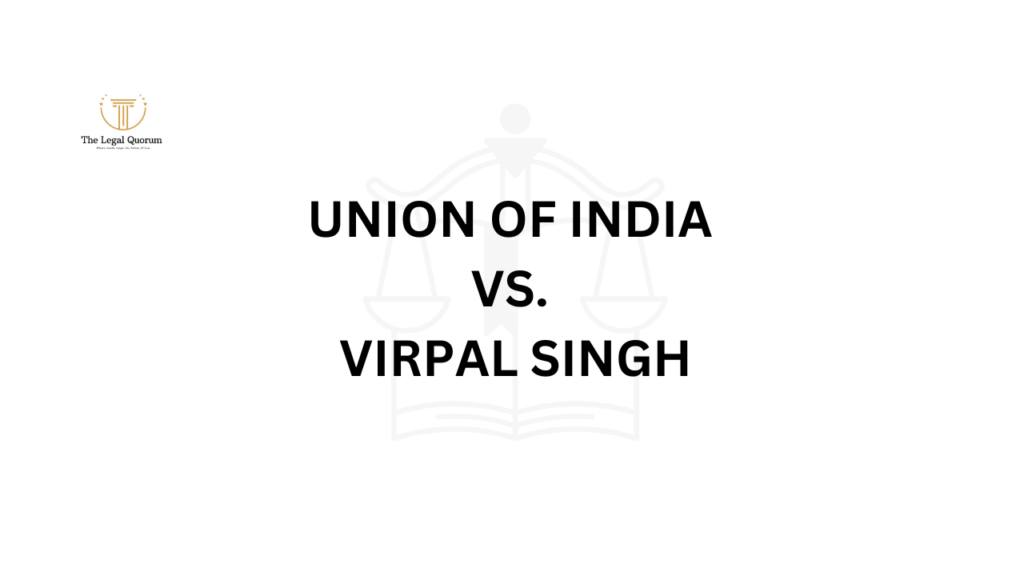Published On: November 25th 2025
Authored By: Palla Navanya
Sastra Deemed to be University
- Citation: AIR 1976 Delhi 321; 13 (1977) DLT 279B; 1976 RLR 487; ILR (1976) 1 Delhi 665
- Court: High Court of Delhi
- Bench: Justice Avadh Behari Rohatgi
- Date of Judgment: 11 February 1976
Relevant Statutes:
- Section 9, Hindu Marriage Act, 1955 – Restitution of Conjugal Rights
- Section 10, Hindu Marriage Act, 1955 – Judicial Separation
- Section 13, Hindu Marriage Act, 1955 – Divorce
- Section 23, Hindu Marriage Act, 1955 – Duty of Court to be satisfied before granting relief
FACTS OF THE CASE :
The Appellant (hereinafter called Sushil Kumari) and the Respondent (hereinafter called Prem Kumar) got married on 25 February 1970. Both were lower division clerks earning a monthly salary of about ₹400–450. They lived together as husband and wife until 15 July 1970. The next morning, Sushil left for work, and she never returned home. At that time, she was pregnant, and in February 1971, she gave birth to a daughter that she had taken custody of.
On 13 July 1971, Prem petitioned the trial court under Section 9 of the Hindu Marriage Act for restitution of conjugal rights on the ground of desertion without cause. The trial court framed issues on the withdrawal of the wife without cause, whether cruelty on the part of the husband justified the withdrawal, and what relief was proper if warranted.
Sushil opposed the petition on the grounds of cruelty and dowry demands. She alleged that Prem beat her on 16 July 1970 because she refused to ask her father to give him ₹10,000; that he would come home intoxicated; that he would take her salary without asking; that when she did not give him the keys to the dowry he slapped her; that he brought another woman into the house while her parents were at the wedding of her sister; and that he assaulted her again at her father’s house in November 1970 with two associates.
At the trial, Prem brought his mother, two friends, and a family member; Sushil called herself and two coworkers. On 30 January 1974, the Additional District Judge found for Prem and found that Sushil had left without reason, ordered restitution, and the Prem applied for judicial separation a week later. The Petition for Judicial Separation was stayed upon appeal.
ISSUES BEFORE THE COURT:
- Whether the wife left the husband’s society without reasonable excuse?
- Whether the husband treated the wife cruelly to the point that it was unsafe for her to live with him?
- Whether the husband’s petition for restitution of conjugal rights was made in good faith intending to resume cohabitation?
- Whether the husband’s allegations that the wife had illicit intimacy with one Lalit Nayyar, prevented him from petitioning for restitution?
ARGUMENTS:
APPELLANT (WIFE):
1.) Claimed that her parting was warranted owing to the husband’s cruelty (physical violence, dowry demands, alcohol use, taking her salary, and the beating in November 1970).
2.) Argued that the husband’s claim of “closeness” with Lalit Nayyar amounted to an allegation of adultery, which rendered cohabitation impossible.
3.) Argued that the fact the husband filed a judicial separation petition almost entirely after obtaining restitution showed mostly mala fides, and no real intention.
4.) Relying on Section 23 of the Hindu Marriage Act, the argument was that the court must refuse relief in a situation where the person seeking a remedy was not acting bona fide.
RESPONDENT (HUSBAND):
1.) Disputed the claim of cruelty, and claimed that the wife walked out on her own accord and for no reason.
2.) Claimed the wife was improperly influenced by her parents and the influence of Lalit Nayyar. Claimed he was willing to take her back unconditionally, but she would not.
3.) Claimed that her refusal to live with members of the family was incorrect.
4.) Claimed that she did not provide corroboration for her claim of illness on 16 July 1970, such as, a letter or report from her office.
JUDGEMENT:
Justice Avadh Behari Rohatgi allowed the appeal of Sushil Kumari and rejected the petition filed by Prem Kumar and stated that the Order of restitution of conjugal rights under Section 9 of the Hindu Marriage Act should not be allowed automatically but a genuine and bona fide desire to resume cohabitation must be established by a party. It cannot be used as a form of tactical form of obtaining divorce.
The Court stated that the Prem Kumar himself uttered serious allegations of illicit intimacy in relation to his wife when he said that she was living with Lalit Nayyar. Such allegations of unchastity and adultery are serious charges, strike at the root of confidence in a marital relationship, and make cohabitation impossible because once charges offering a reasonable excuse to live separately are made, there can be no wrongful separation.
In addition, the Court referred to the mala fide, bona fide conduct of the husband, as he commenced proceedings for judicial separation within a week of being granted a decree for restitution. Prem Kumar’s bad faith showed that he was not sincere and was proving that he was filing the earlier petition in bad faith. Accordingly, refusal of relief was granted under Section 23 and the decree was set aside.
KEY FINDINGS:
Regarding cruel treatment and the husband’s purported abandonment of the wife: The Court did not reinstate all factual disputes between the husband and wife, but the Court did differ from the trial court regarding the husband’s own serious accusations of adultery.
Regarding sincere intention: The Court confirmed that restitution under Section 9 is not automatic and that the petitioner has to genuinely intend to re-establish cohabitation. A husband cannot force a wife to cohabit with him when he has accused her of adultery.
On mala fides: The husband’s conduct was glaring. He only filed it judicial separation petition seven days after obtaining his restitution hearing, indicating emphatically that his interests were in pursuing a divorce.
On Section 23: Denial of relief can occur where the petitioner acts in bad faith. The husband’s contradictory positions and false allegations disentitled him from seeking restitution.
As such, the husband’s appeal was allowed, and the trial court’s decree for restitution was set aside and the husband’s petition dismissed.
RATIO DECIDENDI:
Under Section 9, restitution of conjugal rights can only be granted when the petitioner establishes a valid and open intent to live with the other spouse.
Claims of infidelity or immoral sexual conduct by the petitioner against the respondent spouse create a valid reason to remain apart.
Restitution cannot be a mechanism to prepare for divorce, and if mala fides exist, relief is denied under Section 23.
FINAL DECISION:
The Delhi High Court annulled the decree of restitution made by the Additional District Judge and dismissed the husband’s petition made under Section 9. Each party was ordered to bear their own costs.
CRITICAL ANALYSIS:
This ruling is a watershed moment in matrimonial jurisdiction, specifically relating to the exercise of and abuse of section 9 of the Hindu Marriage Act.
- Preservation of Marriage vs Sincerity Test.
The Court made it clear that restitution is intended to preserve marriages, not for one partner to get a tactical advantage. Relief will be determined by the sincerity of the petitioner.
- Allegations of Adultery as an obstacle to restitution
The Court acknowledged that by treating the husband’s allegations against her as a barrier to restitution, dignity and faith in each other go to the heart of cohabitation. Cohabitation cannot be ordered when one partner casts suspicion about the other partners chastity.
- Comparative Commentary
Justice Rohatgi remarked that in England, restitution of conjugal rights was abolished back in 1970 – and was deprecated as an archaic, coercive remedy. This comparative commentary is evidence that the Indian courts are cognizant of changes to matrimonial law and human rights issues.
- Abuse of section 9 as a Divorce Strategy
This judgment is particularly significant in light of how section 9 has been abused, spouses citing restitution at least in part as a way of proving the requirements of a divorce action that one spouse was in fact pursuing – sometimes spouses cite restitution attempts not to save the marriage, but so that they may later commence divorce based on non compliance. The Court clearly rejected this as a strategy.
- Gender Justice and Autonomy
By siding with the wife, the Court implicitly acknowledged a woman’s autonomy in matters of marriage. It left her free of being forced to live with a husband who not only abused her but publicly demeaned her character.
CONCLUSION:
The Delhi High Court’s ruling in Sushil Kumari Dang v. Prem Kumar Dang (1976) represents a turning point regarding the limits of restitution of conjugal rights. It makes clear that this provision cannot be mechanically or maliciously applied, and that real intent and good faith are the primary bases for any remedy. In standing up to a husband who is trying to use Section 9 as his path to divorce arguing against his wife, the Court affirmed that the privilege of marriage is based on trust and respect.
This decision is still cited today as a standard for other courts to apply so as to examine whether the petitioner’s positive intentions are bona fide in matters of restitution and to protect husbands and wives, particularly women, against oppressive remand procedures.




